Music is Universal and Key Stimulus Advancing Physiological Connections.

India, the world’s second most populous country, is facing the emergence of a hidden epidemic of neurologic disability, largely due to 3 emerging health trends:
1) an increase in traumatic brain injuries (TBI) from road traffic accidents (RTA);
2) an increase in the incidence of age-related dementia; and
3) an increase in the stroke incidence.
‘Neuro-disability’ is an umbrella term for a wide range of disabilities stemming from long-term neurological conditions which cause damage to the brain and nervous system. It affects motor, communication, cognitive abilities and financial aspects of the lives of patients and their families. So, it is important to find out the approaches and incorporate strategies which supplement the traditional rehabilitation therapy in order to optimize the recovery of function and quality of life.
Music is known to have a wide range of physiological effects on the human body including for example changes in heart rate, respiration, blood pressure, skin conductivity, skin temperature, muscle tension, and biochemical responses. Historically, music therapy was first used with veterans with post-traumatic stress disorder (PTSD) following World War II.
The peculiarity of music as a multisensory stimulus in neurological rehabilitation and its therapeutic use is widely documented as being valuable in the field of Neuro-disability and having a significant role to play.
A definition that closely aligns itself with the philosophy of long-term care environments comes from the World Federation of Music Therapy 2011: ‘Music therapy is the professional use of music and its elements as an intervention in medical, educational and everyday environments with individuals, groups, families, or communities who seek to optimise their quality of life and improve their social, communicative, emotional, intellectual, and spiritual health and well-being.’
This story is from the May 2018 edition of PHYSIOTIMES.
Start your 7-day Magzter GOLD free trial to access thousands of curated premium stories, and 9,000+ magazines and newspapers.
Already a subscriber ? Sign In
This story is from the May 2018 edition of PHYSIOTIMES.
Start your 7-day Magzter GOLD free trial to access thousands of curated premium stories, and 9,000+ magazines and newspapers.
Already a subscriber? Sign In
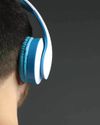
Neurological Music Therapy
Music is Universal and Key Stimulus Advancing Physiological Connections.

Traning Injuries
Implementing A Standard Screening Process
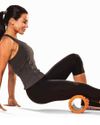
Stretch - O - Roll
Importance & effects of adequate stretching and foam rolling pre & post workout

Put Your Feet Into Right Shoes
Wearing proper footwear is one of the important aspects of daily life where people tend to pay very little attention.
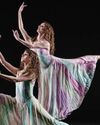
Movement & Gestures
Drama helps you to Learn.

Smart Rehab
Home Exercise Program Using Smartphones
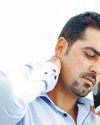
Smart Phone Aches
Techno-health Glitches
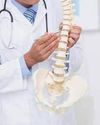
Patient Education
Tell me and I will forget, Show me and I may remember, Involve me and I will understand.